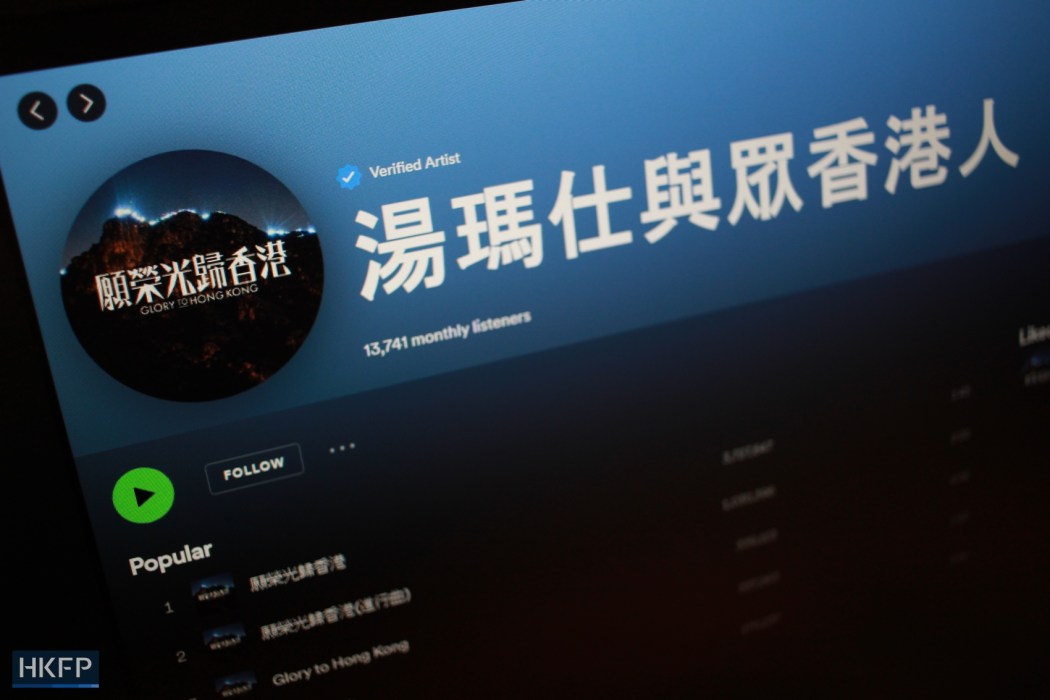It would be difficult for the government to appeal against a court decision to reject an injunction to bar the broadcasting and performance of pro-democracy protest song Glory to Hong Kong with illegal intentions, a senior government advisor has said.
Hong Kong’s Court of First Instance rejected a government injunction application last Friday, saying such a move could have a “chilling” effect on freedom of speech. The court also questioned whether there was genuine use in ordering an injunction.

Speaking on Commercial Radio on Monday, lawyer and executive councillor Ronny Tong said that should the Department of Justice (DoJ) appeal the court ruling, it would face “considerable difficulty.”
“If [the government] insists on appealing and loses the appeal, it will not be a good look for the government, politically it would not be a good look,” Tong said in Cantonese.
The executive councillor added that the court decision did not mean the judge thought that broadcasting the song was unproblematic.
The ruling last Friday revealed that the chief executive had issued a certification that the four acts the government sought to ban were “contrary to the interests of national security.”
Tong said on Monday that the judgement accepted the chief executive’s certification, meaning that the promotion and broadcasting of the song was seen by the court as an act endangering national security.

The senior counsel added that it was “unwise” and “irresponsible” for platforms to re-upload the song, and questioned whether the service providers were attempting to facilitate people to commit crimes. After the government announced it would be applying for an injunction, the song disappeared from various streaming platforms, before later being reuploaded to several.
The DoJ sought to bar the distribution of the pro-democracy protest song with the intention to incite secession, sedition, or to violate the national anthem law. The government also sought to bar anyone from assisting with those acts.
The administration made the move following several mix-ups at international sporting events, when organisers relying on Google searches mistook the protest song for the national anthem, China’ s March of the Volunteers.
The lyrics of Glory to Hong Kong, a song popularised during the 2019 extradition bill protests, contain the phrase, “Liberate Hong Kong, revolution of our times,” a slogan that was ruled to be capable of inciting secession during the city’s first national security trial.

In June 2020, Beijing inserted national security legislation directly into Hong Kong’s mini-constitution – bypassing the local legislature – following a year of pro-democracy protests and unrest. It criminalised subversion, secession, collusion with foreign forces and terrorist acts, which were broadly defined to include disruption to transport and other infrastructure.
The move gave police sweeping new powers, alarming democrats, civil society groups and trade partners, as such laws have been used broadly to silence and punish dissidents in China. However, the authorities say it has restored stability and peace to the city.
Support HKFP | Policies & Ethics | Error/typo? | Contact Us | Newsletter | Transparency & Annual Report | Apps
Help safeguard press freedom & keep HKFP free for all readers by supporting our team
























